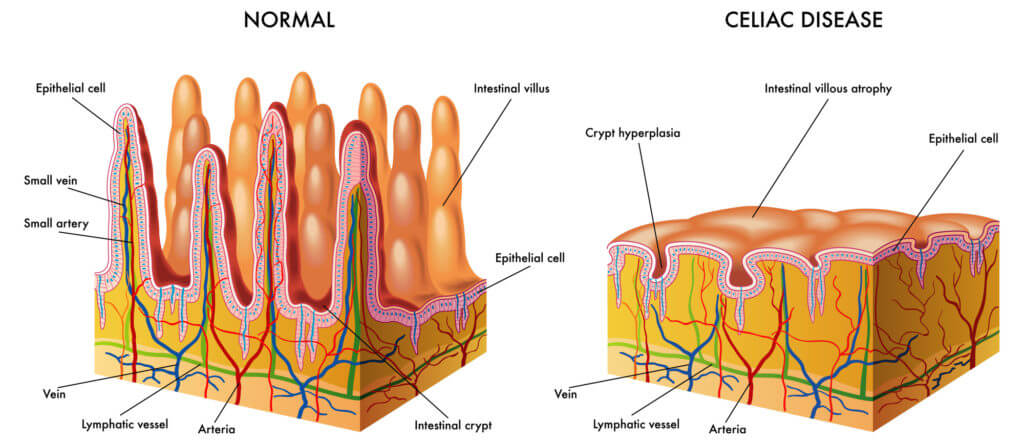Articles and Information
May is National Celiac Disease Awareness Month
April 25 2019

Celiac disease is an immune disease in which people can’t eat gluten because it will damage their small intestine. If you have celiac disease and eat foods with gluten, your immune system responds by damaging the small intestine. Gluten is a protein found in wheat, rye, and barley. It may also be in other products like vitamins and supplements, hair and skin products, toothpastes, and lip balm.
Celiac disease is a serious autoimmune disorder that can occur in genetically predisposed people where the ingestion of gluten leads to damage in the small intestine. It is estimated to affect 1 in 100 people worldwide. Two and one-half million Americans are undiagnosed and are at risk for long-term health complications.
Celiac disease can be difficult to diagnose because it affects people differently. There are more than 200 known celiac disease symptoms which may occur in the digestive system or other parts of the body. Some people develop celiac disease as a child, others as an adult. The reason for this is still unknown.
Digestive symptoms are more common in infants and children. Here are the most common symptoms found in children:
- abdominal bloating and pain
- chronic diarrhea
- vomiting
- constipation
- pale, foul-smelling, or fatty stool
- weight loss
- fatigue
- irritability and behavioral issues
- dental enamel defects of the permanent teeth
- delayed growth and puberty
- short stature
- failure to thrive
- Attention Deficit Hyperactivity Disorder (ADHD)
Adults are less likely to have digestive symptoms, with only one-third experiencing diarrhea. Adults are more likely to have:
- unexplained iron-deficiency anemia
- fatigue
- bone or joint pain
- arthritis
- osteoporosis or osteopenia (bone loss)
- liver and biliary tract disorders (transaminitis, fatty liver, primary sclerosing cholangitis, etc.)
- depression or anxiety
- peripheral neuropathy (tingling, numbness or pain in the hands and feet)
- seizures or migraines
- missed menstrual periods
- infertility or recurrent miscarriage
- canker sores inside the mouth
- dermatitis herpetiformis (itchy skin rash)
READ MORE
The information contained in this Avenue 360 Web site is not a substitute for medical advice or treatment, and Avenue 360 recommends consultation with your Avenue 360 doctor or health care professional.